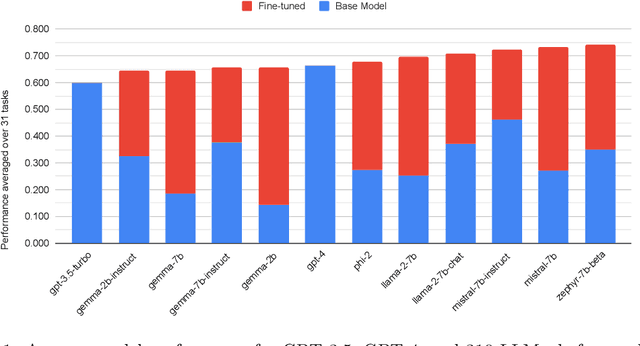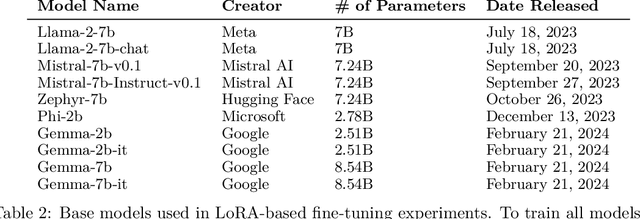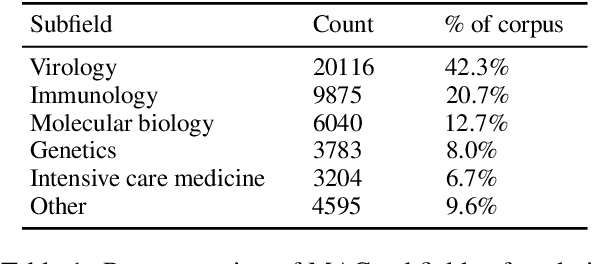Devvret Rishi
LoRA Land: 310 Fine-tuned LLMs that Rival GPT-4, A Technical Report
Apr 29, 2024



Abstract:Low Rank Adaptation (LoRA) has emerged as one of the most widely adopted methods for Parameter Efficient Fine-Tuning (PEFT) of Large Language Models (LLMs). LoRA reduces the number of trainable parameters and memory usage while achieving comparable performance to full fine-tuning. We aim to assess the viability of training and serving LLMs fine-tuned with LoRA in real-world applications. First, we measure the quality of LLMs fine-tuned with quantized low rank adapters across 10 base models and 31 tasks for a total of 310 models. We find that 4-bit LoRA fine-tuned models outperform base models by 34 points and GPT-4 by 10 points on average. Second, we investigate the most effective base models for fine-tuning and assess the correlative and predictive capacities of task complexity heuristics in forecasting the outcomes of fine-tuning. Finally, we evaluate the latency and concurrency capabilities of LoRAX, an open-source Multi-LoRA inference server that facilitates the deployment of multiple LoRA fine-tuned models on a single GPU using shared base model weights and dynamic adapter loading. LoRAX powers LoRA Land, a web application that hosts 25 LoRA fine-tuned Mistral-7B LLMs on a single NVIDIA A100 GPU with 80GB memory. LoRA Land highlights the quality and cost-effectiveness of employing multiple specialized LLMs over a single, general-purpose LLM.
CORD-19: The Covid-19 Open Research Dataset
Apr 25, 2020



Abstract:The Covid-19 Open Research Dataset (CORD-19) is a growing resource of scientific papers on Covid-19 and related historical coronavirus research. CORD-19 is designed to facilitate the development of text mining and information retrieval systems over its rich collection of metadata and structured full text papers. Since its release, CORD-19 has been downloaded over 75K times and has served as the basis of many Covid-19 text mining and discovery systems. In this article, we describe the mechanics of dataset construction, highlighting challenges and key design decisions, provide an overview of how CORD-19 has been used, and preview tools and upcoming shared tasks built around the dataset. We hope this resource will continue to bring together the computing community, biomedical experts, and policy makers in the search for effective treatments and management policies for Covid-19.
 Add to Chrome
Add to Chrome Add to Firefox
Add to Firefox Add to Edge
Add to Edge